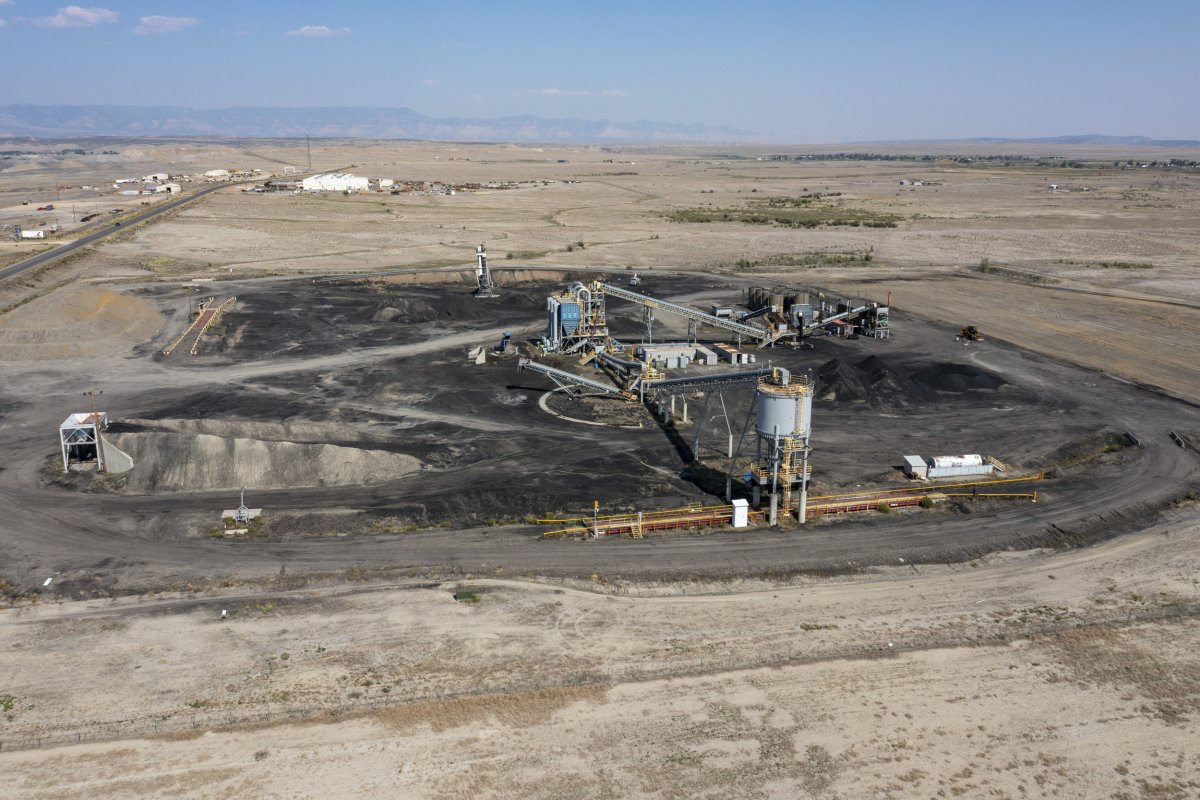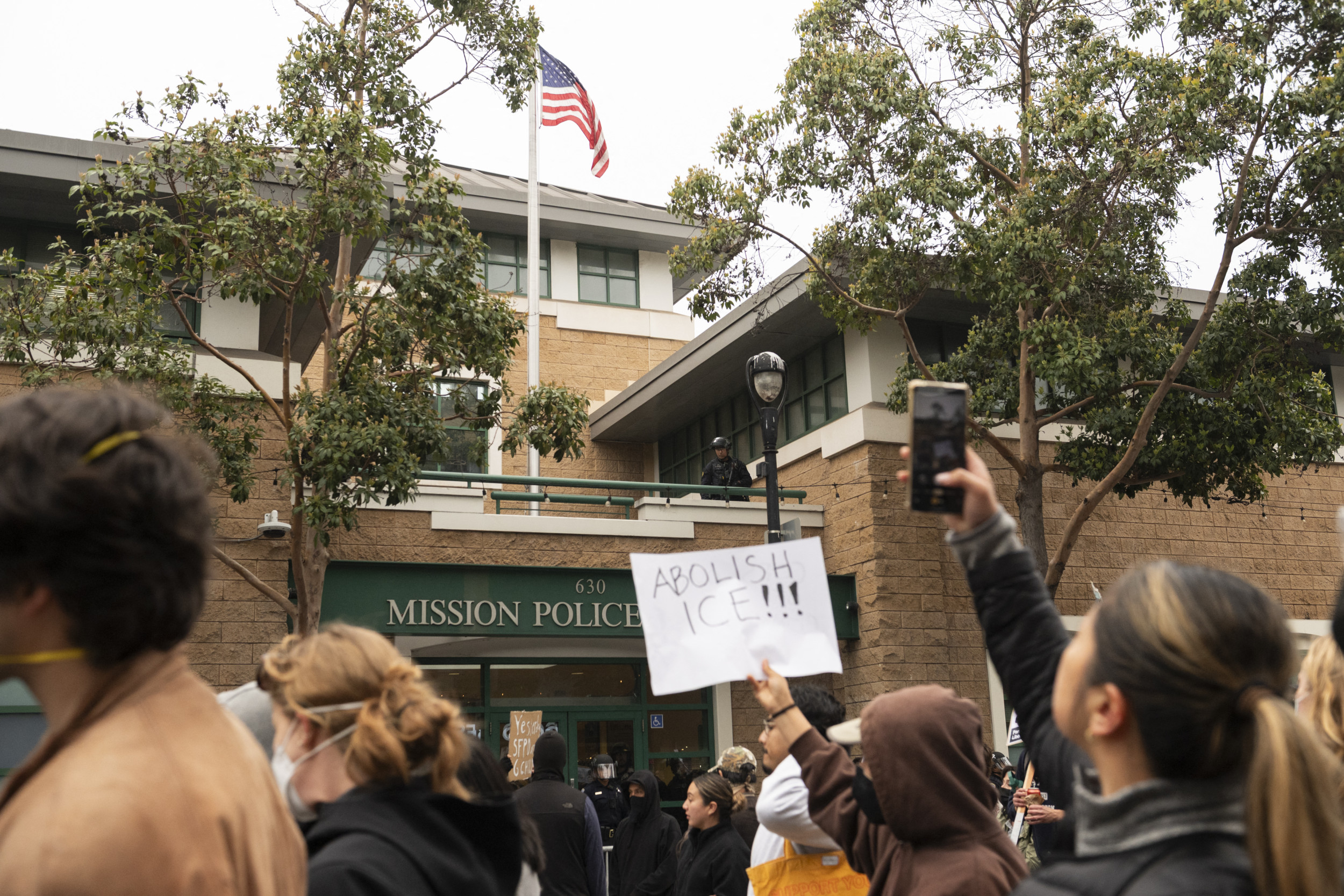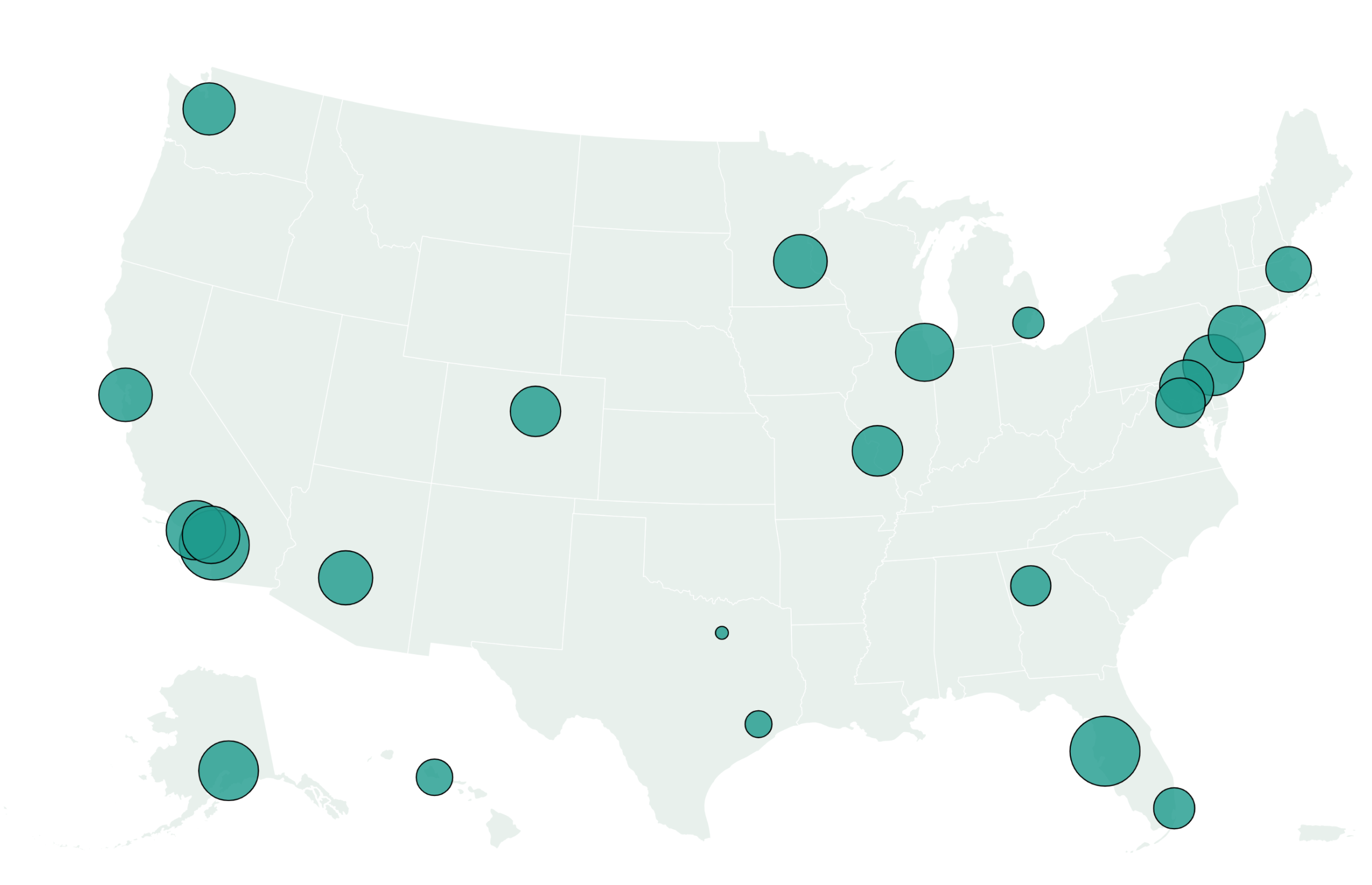
A coalition of attorneys general across 15 states is suing the Trump administration over declaring a “national emergency” on the first day of Donald Trump‘s presidency.
On January 20, President Trump declared a “national energy emergency” via executive order, over what he claimed to be “our Nation’s inadequate energy supply.”
The attorneys general from Washington and California say this is not true, and that US energy production is actually at “an all time high.”
“Washington state filed suit today alongside 14 other states to challenge the president’s fake “energy emergency,” declared to line the pockets of Big Oil by handing out free passes to pollute our environment,” said Washington Attorney General Nick Brown on May 9.
The full list of states suing the Trump administration is: Washington, California, Arizona, Connecticut, Illinois, Massachusetts, Maine, Maryland, Michigan, Minnesota, New Jersey, Oregon, Rhode Island, Vermont, and Wisconsin.
The suit is filed against the president, Lieutenant General William H. Graham Jr., who is the head of the Army Corps of Engineers, and Travis Voyles in his official capacity as Vice Chair of the Advisory Council on Historic Preservation.
The Army Corps of Engineers told Newsweek: “The U.S. Army Corps of Engineers does not comment on matters in litigation.”

Alex Brandon/AP Photo
Why It Matters
The complaint accuses the Trump administration of enacting energy policies via the “emergency,” which will damage “waters, wetlands, critical habitat, historic and cultural resources, endangered species, and the people and wildlife that rely on these precious resources.”
The Trump administration has also been accused of breaking the law by declaring an “energy emergency” when there is no evidence of an actual emergency.
What To Know
President Trump’s “National Energy Emergency” allows for increased mining and drilling from “coast to coast” for coal, crude oil, natural gas, refined petroleum products, and uranium.
The executive order claims that the US has “unrealized energy potential,” but the complaint states: “The United States produces so much oil and natural gas, in fact, that companies have said they will not increase output in response to the President’s declaration of a national energy emergency because it is not economical to do so.”
The complaint also states that in 2019, President Donald Trump said that the nation had “achieved energy independence.”
The US has been a net energy exporter since that time, as it produces more oil and gas than it uses.
The executive order states that “dangerous State and local policies” in the Northeast and West Coast ” devastate the prosperity of not only local residents but the entire United States population.”
However, the 15 states suing the president, most of which are in the Northeast and West Coast, have said “the shortcuts inherent in rushing through emergency processes fundamentally undermine the rights of States.”
The complaint also says that, counter to the Trump administration’s claims that people are being harmed by the United States’ apparent lack of energy production, increasing production via an emergency order will create “irreparable harm” to people who rely on the land for sustenance, habitation, and recreation.
The emergency was enacted via the National Energy Act (NEA), an act that allows the president to bypass Congress when they lack adequate time to act on a situation, such as an unfolding natural disaster.
Plaintiffs cite Senator Frank Church, one of the key writers of the NEA, in their complaint, who said: “The President should not be allowed to invoke emergency authorities or in any way utilize the provisions of this Act for frivolous or partisan matters, nor for that matter in cases where important but not ‘essential’ problems are at stake.”
The NEA, per its writer, cannot be used for “partisan matters,” yet the president’s executive order states that the US is in an “emergency” due to the actions of the Biden administration.
The president is also supposed to, under the NEA, transmit the terms of the emergency to Congress, which then approves and authorizes the use of emergency powers. It is unclear at this time whether the president has brought his emergency to Congress to be approved.
It does not appear as if Congress has taken a vote to directly approve of actions taken under this “national emergency,” however, the Senate did vote 47-52 against a resolution brought by Senator Kaine to strike down the emergency.
The complaint goes on to say the president will violate the Clean Water Act, Endangered Species Act, National Environmental Policy Act, and several other environmental regulations.
Additionally, the complaint points to how the executive order does not include solar or wind energy in its definition of “energy,” adding: “The Executive Order emphasizes the need for more “domestic energy resources,” but wind and solar resources are produced domestically, too.”

Jon G. Fuller/VWPics via AP Images
What People Are Saying
Nick Brown, Washington State Attorney General: “The president’s attempt to bypass important environmental protections is illegal and would cause immense harm to Washingtonians. This won’t lower prices, increase our energy supply, or make our country safer. We’re back in court to hold him accountable.”
Casey Sixkiller, director of the Washington Department of Ecology: “Environmental regulations exist because we’ve seen what happens when they don’t. The federal administration is proposing an end-run that ignores the hard lessons of the past. These protections aren’t red tape — they’re guardrails that protect our air, water, land, and keep our families safe.”
Senator Tim Kaine: “The United States is producing more energy than at any other point in history. So why would Donald Trump spend his first day in office declaring a national energy emergency, and then halt crucial investments from the Inflation Reduction Act that are creating jobs, lowering energy costs, and supporting American leadership in the clean energy industries of tomorrow?
“Because Trump will do anything for Big Oil. I’m proud to introduce legislation to terminate this sham emergency, which is nothing more than a shameless power grab to suspend environmental regulations and make it easier for massive fossil fuel corporations to take Americans’ private property for their own gain.”
What Happens Next
This lawsuit is one of many accusing the president of undermining the authority of Congress and overreaching the powers of the executive branch.





